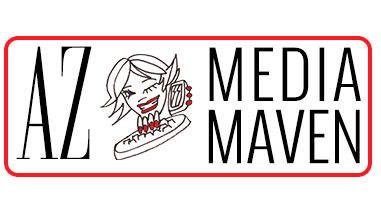Social media managers are responsible for creating and executing social media strategies for businesses and organizations. With the increasing importance of social media in marketing, social media managers wear many hats and have to understand and use a multitude of tools to be effective in their positions. The newest and trendiest tool that many are investigating is artificial intelligence (AI). By leveraging the power of AI, social media managers can find new efficiencies in how they do their jobs.
AI is a rapidly growing field of research that involves using machines to perform tasks that typically require human intelligence, such as learning, reasoning, and problem-solving. Social media managers can use AI to assist with automating tasks, analyzing data, and optimizing strategy. Here are 5 ways AI can assist social media managers:
Social listening
One of the most productive ways social media managers can use AI is for social listening. Social listening is the monitoring of social media channels and other online platforms for mentions of a brand, product, or topic. Google Alerts, for example, can be set to send a notification whenever a client gets a mention in the media. AI-powered social listening tools also can analyze millions of social media posts to identify trends, public sentiment, and which influencers are significant to the topic.
By using AI-powered social listening tools, social media managers can quickly identify what people are saying about their brand, their competitors, and their industry. They can use this information to inform their social media strategies, to identify opportunities for engagement, and to manage their brand’s reputation.
Content creation
Creating high-quality, engaging content is a crucial part of any social media strategy. However, everyone faces a dry well of creativity at some point, especially after working with the same industry for a long period of time. Coming up with new ideas and creating content is time-consuming and can be challenging. AI-powered content creation tools can assist social media managers by generating content ideas, writing captions, and even creating images and videos.
These tools use machine learning algorithms to analyze social media data and generate content that is likely to resonate with the target audience. For example, some AI-powered content creation tools can analyze images to identify the most popular colors and styles, and then use this information to generate images that are likely to be engaging. Why not try AI out to promote your business during the Holiday Season?
Personalization
Personalization is becoming increasingly important in social media marketing. By using AI-powered tools to analyze social media data, social media managers can create personalized experiences for their audience. For example, they can use AI to identify which content is most popular with a particular segment of their audience, and then target that content specifically to that group. Studying analytics and determining this type of data manually is exceedingly time-consuming. Just like a calculator makes it easier to do math, AI can assist in analyzing data and implementing that information immediately to improve strategy.
AI-powered personalization tools also can be used to automate the process of creating personalized content. For example, they can analyze a user’s browsing history, search history, and social media activity to determine what content is most relevant to them, and then automatically generate personalized content based on this information.
Chatbots
Chatbots have become a standard part of visiting many websites and on most social media platforms. Chatbots use natural language processing and machine learning to understand and respond to user queries. Social media managers can use chatbots to automate customer service inquiries, handle simple requests, and provide personalized recommendations.
AI-powered chatbots can handle a large volume of inquiries and provide quick, accurate responses. They also can learn from their interactions with users, improving their responses over time.
Predictive analytics
Predictive analytics involves using machine learning algorithms to analyze historical data and make predictions about future events. Social media managers can use predictive analytics to identify trends, predict engagement rates, and optimize their social media strategies.
For example, they can use predictive analytics to identify the best time to post content, which types of content are likely to be most popular, and which social media platforms are most effective for reaching their target audience. By using predictive analytics, social media managers can optimize their strategies to achieve the best possible results. Again, manually reviewing numbers on spreadsheets takes hours of time that AI can reduce to minutes.
AI offers numerous opportunities to assist social media managers in their jobs. From social listening to content creation, personalization, chatbots, and predictive analytics, AI can help social media managers save time, gain insights, and optimize strategies. As AI continues to advance, we can expect to see more innovative uses for this technology in social media marketing.
AZ Media Maven is based in Laveen, AZ, a suburban village in the greater Phoenix area. Owner Rose Tring has more than 30 years of journalism experience as an editor and writer, many of those years in business news. She created AZ Media Maven in 2012 to help other business owners succeed by effectively telling their stories through public relations and social media. Reach AZ Media Maven at azmediamaven@azmediamaven.com or call (602) 373-8371.








